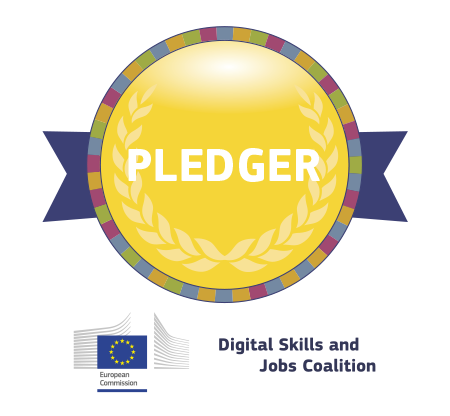LINPRA – publicly acknowledged at Digital Skills and Jobs Coalition
LINPRA has been publicly acknowledged for the contribution as a Pledger at Digital Skills and Jobs Coalition and has a pledge in the Digital Skills for Labour Force category.
The Digital Skills and Jobs Coalition brings together Member States, companies, social partners, non-profit organisations and education providers who take action to tackle the lack of digital skills in Europe. Member States can support cooperation among different actors in their country by bringing them together in national Digital Skills and Jobs Coalitions.
Specifically, we contribute to the development of vocational competences – including digital ones – for at least 100 trainees and at least 50 VET trainers in the metalworking sector, with the development of a new set of occupational standards, a new VET programme and educational material that matches the skills requirements of the manufacturing industry. In addition, we commit to actively work in the field of vocational guidance and reach at least 6,000 young people and vocational teachers with a mobile STEAM laboratory (InfoMobil), aimed at increasing the attractiveness of the engineering professions and the awareness of the need for digital skills in the manufacturing industry. In order to strengthen vocational training for engineering professionals we aim to establish a sector ‘Professional competence center’, gathering the vocational training centers that provide training programmes relevant to the sector.

List of all National coalitions.


